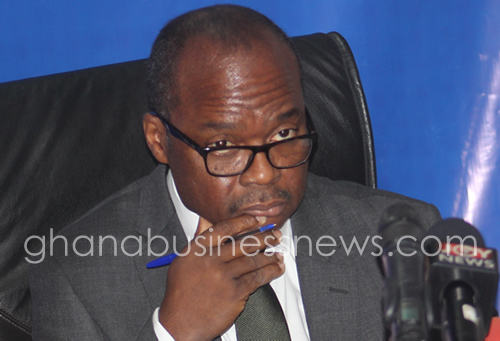NDC demands resignation of Bank of Ghana Governor and deputies

The National Democratic Congress (NDC) has asked the Governor of the Bank of Ghana (BoG) and his deputies to step aside, accusing them of “mismanaging” the central bank.
The NDC accused the leadership of the central bank of “unleashing economic hardship and financial distress on the suffering people of Ghana”.
Addressing a press conference in Accra on Tuesday, Dr Cassiel Ato Forson, the Minority Leader in Parliament, faulted the leadership of the BoG for the Bank’s GH¢60 billion loss incurred in 2022.
“…We call for the resignation of the Governor of the central bank within 21 days from today. We are resolved to embark upon popular action to occupy the central bank.
“The March to Ensure Accountability will begin in 21 days if the Governor of the Bank of Ghana does not do the needful and pack bag and baggage out of that sacred institution that he has so desecrated,” he said.
Dr Forson also accused the BoG of writing-off a GH¢48.4 billion, about half of Ghana Government’s indebtedness to the central bank, without parliamentary approval.
“This is illegal and criminal and the NDC Members of Parliament will not allow this to pass,” he said.
The BoG has explained that its decision to take a 50 per cent haircut on government’s debt saved the economy from collapse and sent a positive signal to external partners.
The BoG incurred a loss of GH¢55.12 billion in 2022, largely as a result of the government’s Domestic Exchange Programme (DDEP) after its non-marketable holdings of government of Ghana instruments, including long-term stocks, a COVID-19 Bond and overdraft, which were subjected to a 50 per cent haircut.
Also, the Bank’s other claims (holdings of marketable instruments) were exchanged under similar terms as other financial institutions under the DDEP, leading to an impairment of GH¢48.40 billion in 2022.
In addition, the Bank incurred revaluation losses on its foreign assets and liabilities due to exchange rate depreciation, leading to a total loss of GH¢55.12bn equity in 2022.
Source: GNA
